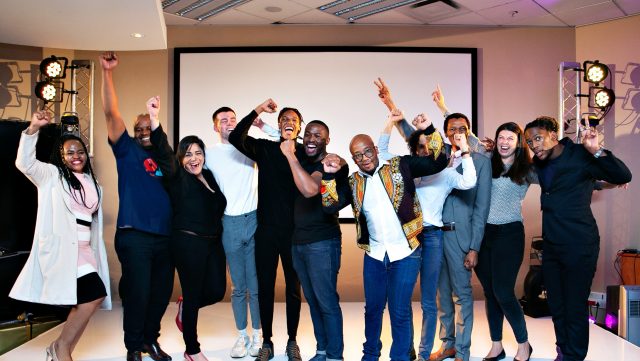In a move that signals a major leap forward in generative AI, OpenAI has quietly rolled out ChatGPT-5, its most advanced model to date….
How to win a R1.5-million entrepreneurial package for your fintech idea or business

South Africa’s most prestigious fintech R10-million startup initiative, AlphaCode Incubate, shares how to improve the chances of accessing its support and unpacks the trends in the fintech incubation ecosystem.
The value of this entrepreneurial package is almost R1,5-million for each startup. Apply at www.alphacode.club/incubate. Applications close on 26 October 2020
AlphaCode Incubate has disbursed R30-million in funding to 31 black-owned financial services businesses over the past five years and is currently accepting applications for its next programme which offers packages valued at R1,5-million for successful applicants.
“We’re primarily seeing applicants aged 19 plus, those who are in their final year of tertiary education, as well as corporate refugees who have experience in financial services or tech. We have seen that the experience of older applicants has aided their success,” says Amina Patterson, head of operations at AlphaCode.
Age of founders
She explains, “In the current AlphaCode Incubate programme, we found the average age of the founders that managed to achieve product-market fit was 38 years old. But we have seen successful founders aged between 30 and 52.”
In 2018, the average age of the founders was 26. Last year, the programme received 208 applications where the average age of the founders was 36. The youngest founders were as young as 19 years old and in matric when they applied with their youth-focused fintech startup, Budgie.
However, Tami Ngalo, the founder and CEO of medical savings solution Oyi Medical Card, is a corporate refugee with over 20 years of hands-on experience in payments and banking technology. Ngalo’s product won AlphaCode’s most recent pitch event based on its market relevance and its founder’s dedication to building a viable product.
Middle-aged entrepreneurs
A study by the Census Bureau and two MIT professors found the most successful entrepreneurs tend to be middle-aged (Generation X born 1965-1980). The average startup founder was 45 years old when he or she founded the most successful tech companies. This is on account of their life and professional experience, technical skills, industry knowledge, and due to employment are able to bootstrap their business.
Closer to home, The SA Fintech in Motion report released by RMB in 2019 regarding the state of fintech in South Africa, cited that the average age of fintech entrepreneurs is between 31 and 40 (60% of those surveyed).
Corporate refugees or potential corporate refugees are professionals who are passionate about innovation and entrepreneurship with fintech ideas in their 30s, 40s and 50s are ideal candidates for the programme.
Types of ideas
Even though South Africa has an advanced banking system, the needs of the previously disenfranchised have not been met. Consequently, the majority of the fintech ideas that entrepreneurs pitch to the AlphaCode Incubate programme have socio-economic development themes that look at solving issues of financial inclusion, challenges in the township economy, how to increase the savings pool, and financial education.
Examples include IsiDuli that finances the construction of backyard rooms in townships; Spoon Money, a credit provider using stokvel principles to support female street vendors; and Level Finance, a socially responsible daily money management platform for employees. Other fintechs included insuretechs like Vaai and proptechs like Jamii Cities.
Applications that stand out
AlphaCode recommends researching the landscape (the regulatory environment, competitors, and market feedback) and innovating around the gaps that exist.
The AlphaCode Incubate programme encourages ideas where the founders have engaged their target market to validate the problem identified. “Too often entrepreneurs are biased towards only solving a problem which they have experienced. It’s important to validate that it’s a problem experienced by a wide section of the population,” says Patterson.
The startups that achieve product-market fit are constantly testing assumptions by speaking to their customers, industry experts, regulators, and investors. They evaluate whether they are solving the right underlying problem and not just the pain points experienced by their customer. They also ascertain whether their solution adds sufficient value so that they can generate an income that exceeds costs.
This year’s tiered incubator package aims to help each entrepreneur establish a market-viable, problem-solution fit and eventually create a sustainable, profitable business.
AlphaCode Incubate is currently accepting applications until Monday, 26 October 2020 to participate in its latest programme. Successful applicants will receive funding, guidance from performance coaches and a panel of advisory experts, access to AlphaCode’s co-working space, and opportunities to apply for further early-stage investment.
The value of this entrepreneurial package is almost R1,5-million for each startup. Apply at www.alphacode.club/incubate.
Featured image: Winners of AlphaCode Incubate 2019 (Supplied)
Company Office is a subscription-based press office service.



